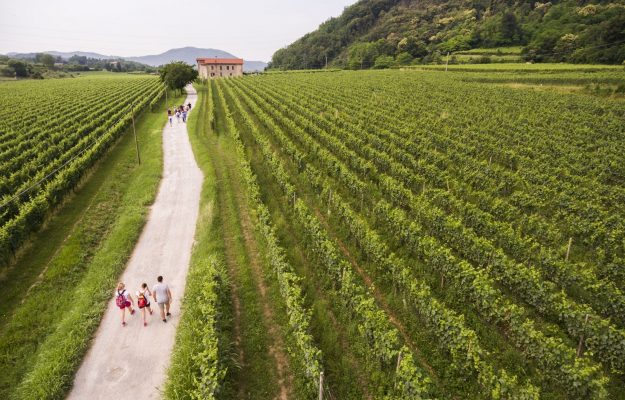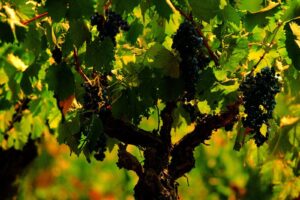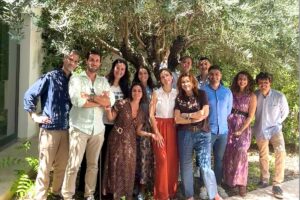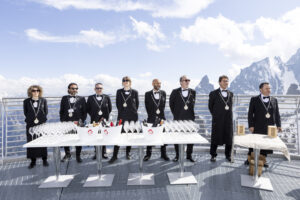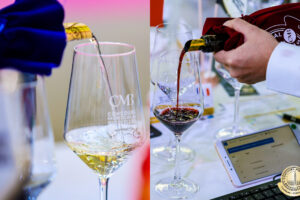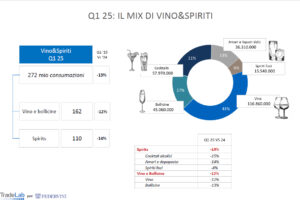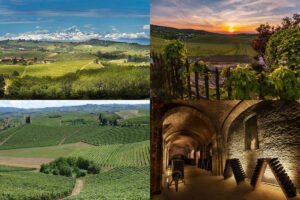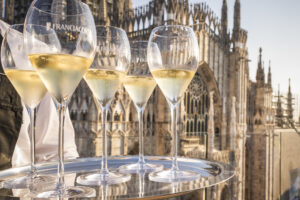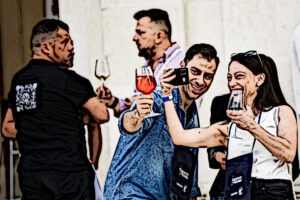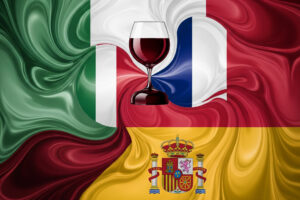Enhance the territories and villages of Italy, contributing to the growing problem of the concentration of tourist flows in a few large cities, thanks to the charm and growing interest in the excellence of food and wine made in Italy, and their places and methods of production, and act as an indirect driving force for exports of Made in Italy food and agriculture: are two of the effects, and goals to be enhanced, of wine and food tourism in Italy, whose importance goes beyond the already relevant numbers, as emerged from the National Meeting No. 1 of the Strade del Vino, dell’Olio e dei Sapori d’Italia, yesterday in Montepulciano, one of the cradles of the Renaissance of Tuscany and home of the famous Vino Nobile, where they joined in the National Federation, which brings together 80 (from those of Friuli Venezia Giulia to Trentino Alto Adige, from Umbria to the hills of Tortona in Piedmont) which touch more than 1,000 wineries, 500 restaurants, 450 accommodation facilities, 320 agritourism, and 147 products with protected denomination including wine, oil, and other excellences and typicality. Wine and taste tourism, on which the Italian system is increasingly focused, as told to WineNews by Maria Elena Rossi, marketing director of Italia Unit - Ente Nazionale per il Turismo: “the numbers show that one out of four foreigners moves with a specifically enogastronomic motivation, and 2 out of 3 Italians are interested in food and wine and in the knowledge of typical products and territories, important figures. In 2018 Italian tourism counted 430 million overnight stays, 100 million of which were generated by trips aimed at food and wine”.
According to data from the Bank of Italy processed by Enit, the agri-food expenditure of tourists in Italy was over 12 billion in 2017 (15.1% total tourism), of which about 5 billion spent by tourists and 7.3 by Italians. With foreign spending on food and wine holidays that has grown most between 2017 and 2018, arrived at 117 euros per day on average. The largest spenders were the British (57.6 million euros), ahead of the French (36.2), Germans (34.7) and Americans (33.3).
Numbers are growing, also because “the general trend of tourism is towards tourism of experience, and wine and food tourism, which leads not only to the knowledge of the product but also of the places where it was born, the methods and people who make it, go precisely in this direction. The three-year plan approved by Enit aims to increase the value of tourism, to put in place a system of values such as authenticity and territoriality. In the world of food and wine, it is clear that there is already a long way to go, and there is still much to do. There are very advanced and well-positioned territories and regions, but others that must position themselves on the markets. The real challenge is to generate flows that bring value”. Italy has many possibilities, if you think only of the more than 5,000 traditional products, the almost 300 products with denomination of origin, the more than 520 wines DOP and IGP, the creative cities of food and wine UNESCO as Parma and Alba, the more than 334,000 restaurants, 114 museums related to taste and food and so on. With the tourist interest in experiences related to food, wine and food traditions grew by 48% over the previous year. Data emerged in the latest UN World Forum on Gastronomy Tourism, as mentioned by Ernesto Di Renzo, professor of Anthropology of cultural and enogastronomic heritage at the University of Rome Tor Vergata. Analyzing the success of wine tourism at WineNews, he explains: “We start from the assumption that wine generates above all a hedonistic experience, and wine tourism must be able to satisfy this peculiarity, offering experiences that have to do with a complex dimension of sensoriality. Where it is not only the product but the territory, the cellars, the places of production and so on are the best to respond to this complexity, there is the potential for success. This calls into question the quality of the wine, of course, but not only. Ethics is becoming more and more important because today it is not enough to produce good wine, but we must produce a wine that embraces values that touch the sensibilities of today, from sustainability to environmental protection, to the rediscovery of identities. And wine more than other products, including food, is able to express and tell the identity, both through what you drink and through places. But we must go beyond wine as a product category”. And in this sense, explains Di Renzo, the player as the Strada del Vino, and especially the recent project of the National Federation is to be looked at with great interest. “Le Strade del Vino, dell’Olio e dei Sapori interpret our country well, the birth of the Federation says that the territory is becoming a mosaic made of many tiles, which tells the story of Italy through its food, flavors, knowledge, is a project to be supported and directed towards well-defined perspectives. Starting from reading the various Roads not in a competitive way, but complementary, so that each becomes a chapter of a great book”.
Copyright © 2000/2025
Contatti: info@winenews.it
Seguici anche su Twitter: @WineNewsIt
Seguici anche su Facebook: @winenewsit
Questo articolo è tratto dall'archivio di WineNews - Tutti i diritti riservati - Copyright © 2000/2025










